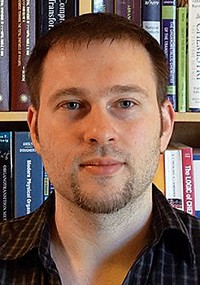Advertisement
Grab your lab coat. Let's get started
Welcome!
Welcome!
Create an account below to get 6 C&EN articles per month, receive newsletters and more - all free.
It seems this is your first time logging in online. Please enter the following information to continue.
As an ACS member you automatically get access to this site. All we need is few more details to create your reading experience.
Not you? Sign in with a different account.
Not you? Sign in with a different account.
ERROR 1
ERROR 1
ERROR 2
ERROR 2
ERROR 2
ERROR 2
ERROR 2
Password and Confirm password must match.
If you have an ACS member number, please enter it here so we can link this account to your membership. (optional)
ERROR 2
ACS values your privacy. By submitting your information, you are gaining access to C&EN and subscribing to our weekly newsletter. We use the information you provide to make your reading experience better, and we will never sell your data to third party members.
Careers
Graduate Training In Natural Products
by Rachel Petkewich
May 14, 2007
| A version of this story appeared in
Volume 85, Issue 20
Most undergraduate programs in chemistry barely mention natural products, so many scientists don't learn about the field until they have a job or look into graduate school.
Graduate training in natural products chemistry may take a little digging to find. Four general areas to check are chemistry, medicinal chemistry, pharmacy, and oceanography.
"Historically, most of the departments with an explicit natural products research focus were in schools of pharmacy," says Larry Walker, professor of pharmacology and director of the National Center for Natural Products Research (NCNPR) at the University of Mississippi. Some schools still have the programs, but other institutions have reorganized their departmental structures.
Few traditional chemistry or oceanography departments claim natural products as a departmental identity, but many have at least one investigator working on an area of natural products, Walker adds.
Almost all parts of natural products work contain components of chemistry and biology. Natural products chemists generally make molecules, whereas more biologically oriented groups such as pharmacognocists tend to isolate and characterize molecules found in nature, says A. Douglas Kinghorn. He is a professor of natural products chemistry and pharmacognosy in the College of Pharmacy at Ohio State University and editor-in-chief of the Journal of Natural Products, which is copublished by the American Chemical Society and the American Society of Pharmacognosy. So, for anyone working in natural products, he says, "it's very important to be able to speak the language of biology as well as being chemically oriented."
In most cases, natural product scientists agree that learning appropriate skills is more important than the specialty that gets printed on a degree. What matters is developing solid skills in, for example, organic synthesis, isolation and characterization, DNA bioassays, or analytical instrumentation.
- Natural Products Niche
- Scientists can find rewarding jobs outside academia or the pharmaceutical industry
- Taking The familiar Route
- Pharma Still Has Room For Natural Products Chemists
- Graduate Training In Natural Products





Join the conversation
Contact the reporter
Submit a Letter to the Editor for publication
Engage with us on Twitter